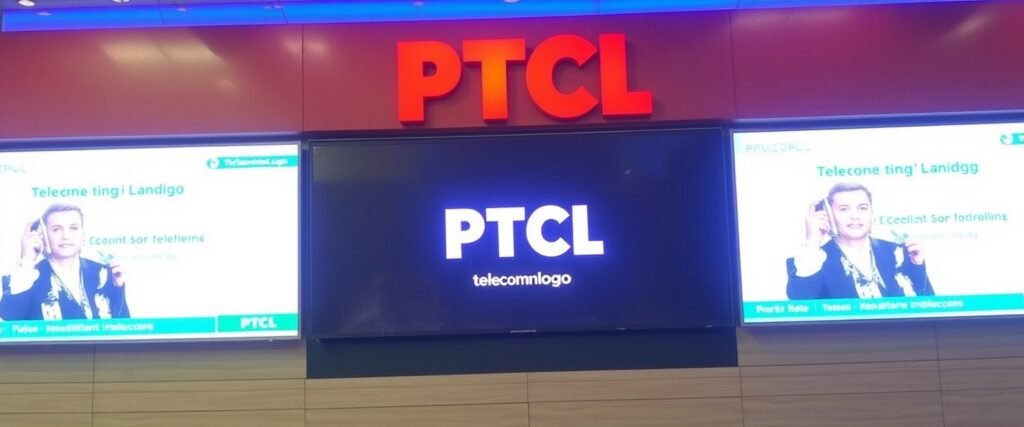Top 7 Telecommunication Companies in Pakistan: Exclusive Insights

Pakistan’s telecommunication sector is one of the most dynamic industries in the country, playing a pivotal role in its economic growth and digital transformation. The rapid adoption of mobile technology, widespread internet access, and the introduction of 4G LTE networks have enabled significant connectivity. With 5G on the horizon, the telecom industry is poised for further growth. Here is an in-depth look at the top 7 telecommunication companies in Pakistan, providing exclusive insights into their services, market position, and contributions to the country’s telecom landscape.
1. Pakistan Telecommunication Company Limited (PTCL)

PTCL is the largest landline and broadband service provider in Pakistan, with deep-rooted significance in the country’s telecom industry. Established in 1947, PTCL has been a key player in shaping Pakistan’s telecommunication landscape. Over time, PTCL has diversified its offerings, moving into broadband, fiber, and digital services.
- Services: PTCL offers a variety of services, including fixed-line telephony, high-speed broadband (DSL and fiber), IPTV (PTCL Smart TV), and enterprise solutions. PTCL’s CharJi service provides wireless broadband solutions, and its EVO devices are popular for mobile internet connectivity. PTCL also serves businesses with cloud services, data hosting, and cybersecurity solutions.
- Strengths: PTCL’s extensive infrastructure, particularly in the broadband market, is its greatest strength. It owns the country’s largest fiber-optic network and provides internet access to some of the most remote areas in Pakistan. The company is also rolling out GPON (Gigabit Passive Optical Network) technology, offering ultra-fast fiber broadband to homes and businesses.
- Innovations: PTCL is expanding its fiber-optic footprint, with plans to connect millions of homes with FTTH (Fiber to the Home) technology. It is also playing a key role in preparing for 5G deployment in collaboration with the government and global telecom companies.
2. Jazz (Mobilink)

Jazz, formerly known as Mobilink, is the largest mobile network operator in Pakistan. Founded in 1994, Jazz has led the telecom market with its comprehensive mobile services and customer base. After merging with Warid Telecom in 2016, Jazz consolidated its position as the leading provider of mobile services in the country.
- Services: Jazz offers 2G, 3G, and 4G LTE mobile services along with mobile broadband through Jazz Super 4G and Jazz WiFi devices. Its prepaid and postpaid mobile plans cater to a wide range of users. JazzCash, its mobile financial services platform, has revolutionized digital payments and banking in Pakistan.
- Strengths: Jazz’s market dominance is reflected in its vast customer base, with over 75 million subscribers. Its strong 4G coverage and a wide range of value-added services like Jazz TV, music streaming, and gaming platforms make it a one-stop shop for mobile users.
- Innovations: Jazz is at the forefront of digital transformation in Pakistan, actively working on 5G trials and enhancing its digital platforms. JazzCash has become a major player in the fintech space, facilitating online payments, money transfers, and bill payments for millions of Pakistanis.
3. Telenor Pakistan

Telenor Pakistan, a subsidiary of the Norwegian telecom giant Telenor Group, has been operating in Pakistan since 2005. It quickly established itself as a major player in the mobile services market and has become known for its focus on innovation and customer-centric services.
- Services: Telenor provides 2G, 3G, and 4G LTE mobile services along with mobile broadband solutions. It offers a wide range of prepaid and postpaid packages, catering to both urban and rural users. Its mobile wallet service, Easypaisa, is one of the most successful digital payment solutions in Pakistan.
- Strengths: Telenor is known for its customer-first approach and strong network presence in rural areas. Easypaisa, the company’s flagship fintech service, has made significant contributions to financial inclusion in Pakistan, with millions of users benefiting from easy access to mobile banking and payments.
- Innovations: Telenor is focusing on digital transformation, with Telenor Velocity, its startup accelerator program, fostering tech innovation in Pakistan. It is also conducting 5G trials and exploring the deployment of advanced technologies like IoT (Internet of Things) and artificial intelligence to enhance user experiences.
4. Zong (CMPak)

Zong, also known as China Mobile Pakistan, is a subsidiary of China Mobile, the world’s largest mobile network by subscribers. Zong entered the Pakistani market in 2008 and quickly became a major player by offering competitive pricing and advanced mobile services.
- Services: Zong offers 2G, 3G, and 4G LTE services, along with the country’s first 4G network, which it launched in 2014. It provides a variety of data packages, mobile broadband devices, and international roaming services. Zong is also involved in enterprise solutions, offering IoT services and corporate connectivity.
- Strengths: Zong’s biggest strength lies in its strong 4G network, which covers over 14,000 sites across Pakistan, making it the leading 4G operator in the country. Zong’s aggressive data pricing and focus on affordable internet services have made it a popular choice among younger users and businesses.
- Innovations: Zong has been a pioneer in introducing 5G technology to Pakistan, conducting successful 5G trials in 2019. The company is also heavily involved in expanding its IoT offerings and building smart city solutions.
5. Ufone

Ufone is a Pakistani telecom company and a subsidiary of Pakistan Telecommunication Company Limited (PTCL). Launched in 2001, Ufone is known for its affordability and strong presence in the prepaid mobile market.
- Services: Ufone offers 2G and 3G services, as well as mobile internet through Ufone Super Internet packages. It has a range of prepaid and postpaid packages, focusing on voice and data services. Ufone’s UPaisa mobile financial services platform allows users to send money, pay bills, and purchase mobile top-ups.
- Strengths: Ufone’s strength lies in its customer-centric approach and affordable packages tailored to meet the needs of lower-income users. Its extensive customer support and flexible mobile packages make it a popular choice in both rural and urban areas.
- Innovations: Although Ufone has been slower to adopt 4G compared to its competitors, it is catching up with its Ufone 4G services and expanding its digital footprint. Ufone is also focusing on enhancing its mobile wallet services through UPaisa, targeting underserved communities for financial inclusion.
6. Warid Telecom (now part of Jazz)
Warid Telecom was a key player in Pakistan’s telecom industry until its merger with Jazz in 2016. Founded in 2004, Warid was known for its high-quality mobile services and strong postpaid offerings.
- Services: Before the merger, Warid provided 2G, 3G, and LTE services, along with a range of prepaid and postpaid mobile plans. Warid’s LTE network was among the best in the country, and it offered competitive voice and data bundles.
- Strengths: Warid’s focus on providing premium services to postpaid customers helped it build a loyal customer base. Its network quality, particularly for LTE, was widely praised.
- Innovations: Warid was a pioneer in introducing LTE in Pakistan, making it the first operator to launch 4G services without offering 3G. Post-merger, its legacy continues through Jazz’s LTE network, which has absorbed Warid’s technology and customer base.
7. Sco Mobile (SCO)
Special Communications Organization (SCO) is a government-owned telecom company that primarily operates in the regions of Gilgit-Baltistan and Azad Jammu & Kashmir (AJK). Established in 1976, SCO provides a wide range of telecom services in these underserved regions.
- Services: SCO offers 2G, 3G, and 4G services in its regions of operation. It provides mobile connectivity, broadband, and landline services. SCO’s Scom brand is the leading mobile network in Gilgit-Baltistan and AJK.
- Strengths: SCO’s unique position as a government entity allows it to operate in remote and sensitive areas where other operators have limited coverage. Its services are crucial for maintaining connectivity in the mountainous and isolated regions of northern Pakistan.
- Innovations: SCO is actively expanding its 4G network in Gilgit-Baltistan and AJK, and the company is exploring opportunities to introduce 5G services in the future. It is also working on expanding its broadband infrastructure to improve internet access in these remote areas.
Final Thoughts

The telecommunication industry in Pakistan is highly competitive and rapidly evolving. The top 7 telecom companies—from the established PTCL and Jazz to the fast-growing Zong and regional player SCO—each contribute to the country’s digital transformation. With increasing investments in 4G and 5G technologies, mobile financial services, and digital innovation, the future of telecom in Pakistan looks promising as the country moves towards greater connectivity and modernization.

